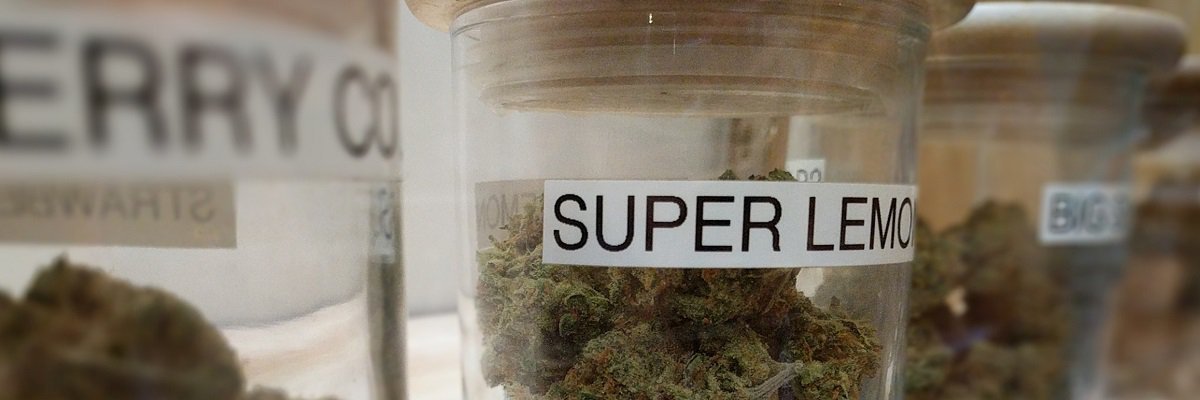As FDIC communications obtained by MuckRock user William Green demonstrate, over the last three years the banking regulator has consistently avoided taking a clear stance on the issue of providing banking services to legal marijuana businesses.
In the states where medical or recreational marijuana has been legalized, businesses dealing in the drug are bringing in a lot of money. ArcView Group data cited by a recent Huffington Post article put the size of the legal industry in the U.S. at $2.7 billion - a 74 percent increase from the 2013 size of $1.5 billion. To say that the non-legal industry is likely much bigger is an obvious understatement.
Unfortunately, because marijuana is still illegal at the federal level, banking regulators have been hesitant to provide the industry with a guarantee that they will not be held responsible for aiding ‘illegal’ drug trafficking. This has led to businesses that - while completely legal on the state level - are forced to deal almost entirely in cash. This invites petty crime, and some businesses have resorted to hiring armed security to guard their bundles of cash.

In a recent piece for the Denver Business Journal, Rep. Ed Perlmutter, D-Colorado, explained that so far, only eight banks and a handful of credit unions are willing to offer banking services to marijuana businesses. As a result, approximately 60 percent of the industry is banked. Even then, the uncertainty from federal regulators has led to serious instability in this area, and some businesses have been through several bank accounts already.
In order to address this issue, there have been steps taken by the Obama administration to provide indication that banks will not be penalized for doing business with above-the-board cannabis companies. On August 29, 2013, the Department of Justice released what has been referred to as the ‘Cole Memo,’ in which the agency outlined its position that the federal government would not enforce marijuana laws in contexts in which states have legalized the drug, provided that the state puts an effective regulatory framework into place.
As the documents obtained by MuckRock show, Denver City Auditor Dennis Gallagher wrote to the chairman of the FDIC exactly one week later to urge that the regulator to revise its policies such that banks would feel confident moving forward with relationships with the burgeoning marijuana industry.

The FDIC promptly responded to Gallagher’s letter two and a half months later with a short letter. In this letter, FDIC chair Martin Gruenberg explained that the Department of Justice was in talks with FinCEN - the regulator tasked with combating financial crimes - and that it would be premature for the FDIC to issue clarification before it received guidance from FinCEN.
For the period between Sept. 3, 2013 - two days before Gallagher’s letter was sent - and February 2014, MuckRock also obtained letters to similar effect from members of Congress Ed Perlmutter and Denny Heck, D-Washington, and from Governors John Hickenlooper, D-Colorado, and Jay Inslee, D-Washington. Each letter was met with a similar response from the collective recipient heads of the federal banking regulatory agencies.
Finally, on February 14, 2014, FinCEN gave the marijuana industry a Valentine’s Day gift in the form of a guidance memo titled BSA Expectations Regarding Marijuana-Related Businesses. The memo itself is fraught with contortions, presumably in order to square the circle that is fitting legal marijuana into a federal law system in which it is plainly illegal.
For example, banks are required to fill out a variety of suspicious activity reporting (SAR) filings in situations in which they suspect that a company with which they are doing business is breaking a federal banking law. The FinCEN memo outlines the situations in which a SAR should be filed for a marijuana-related business, including a “marijuana limited” filing for businesses which are not engaged in any suspicious activity other than selling marijuana.

After this memo was published, no fewer than 16 members of Congress wrote to Gruenberg on March 5, 2014, requesting that the FDIC now issue guidance so that banks would feel comfortable dealing with marijuana businesses. In a response penned just over three months later, Gruenberg and the heads of three other banking regulators responded by indicating that the agency had taken FinCEN’s guidance to heart and would be training its regulators to follow the guidelines.
However, the agency heads fell short of issuing a policy statement from the FDIC that would actually accomplish what the Congress-members had asked of it. The letter expressed a troublingly convoluted statement:

This statement is categorically true, but fails to acknowledge the fact that the “risks” mentioned are almost entirely being created by the agency itself. Banks are not worried that risks inherent in dealing with marijuana businesses could find their way to affecting their bottom lines - they are worried that the bodies that regulate them will decide to prosecute them for working with these businesses down the line should political winds change.
MuckRock also obtained letters sent after this one, all of which resulted in similar responses. Senators Bob Bennet, R-Utah, and Tom Udall, D-New Mexico, wrote a letter in May 2014 to the same agency heads. Two days later, Governors Hickenlooper and Inslee wrote another letter. Congressman Blumenauer, D-Oregon, wrote a letter to Gruenberg in late January 2015 asking for answers regarding MBank’s abrupt exit to the legal marijuana market. The answers to his questions shed relatively little light on the problem, however, and still do not acknowledge that the FDIC has yet to assure the banks that it regulates that it will not pursue them with penalties down the road.
While the country as a whole is moving slowly toward a more liberal drug policy, until banking regulators like the FDIC quit their stalling, banks will be hesitant to deal with marijuana businesses, forcing legal businesses to continue operating their ledgers like dealers - in bags of twenty dollar bills.
Read through the full correspondence on the request page, or embedded below:
Image by O’Dea via Wikimedia Commons and is licensed under CC BY-SA 3.0




